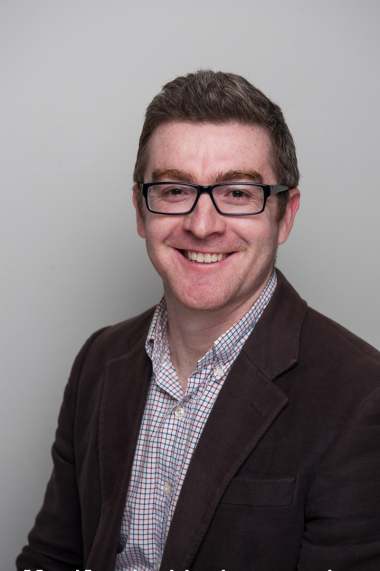There are limits to what atheism can say about our human reality

When I was a 14-year old boy, in that strange midway point between childhood and adulthood, I found myself standing in the playground one day and wondering to myself: if all life amounts to is that we live for 80 or 90 years and then we die and that's it – game over – and whatever we have achieved, whatever we have loved and whatever we have become inevitably disappears into dust, well not only is that a pretty sad story, it's also a meaningless one. Rather like a video game where no matter how well you play, or what choices you make, it's always the same end result, every time. Blank screen. You lose.
As a young teenager, I was not in the habit of asking deep philosophical or spiritual questions. I grew up in a happy, ordinary, non-religious, Australian home. Conversations about God, religion, philosophy, or the meaning of life were just not on the radar in any significant way. It wasn't that they were taboo, it's just that for whatever reason, we never talked about them.
What I was really into was sport, training most days in different disciplines. But at one point I suffered a significant knee injury which meant I had to stop everything for the indefinite future, to give it time to heal. As a result, my lifestyle shifted from one of being very busy and active to one of having more time on my hands than I knew what to do with. I wouldn't have considered myself an overly reflective person but with all this extra spare time it got me to thinking about life.
And I remember thinking: life as a meaningless game doesn't feel like the right story. I wonder if it really is the right story? Because if it is, what's the point of it all?
Rarely do we articulate questions like this out loud, or to each other. I certainly didn't. Life is busy and we have so many "fully-wired" entertainment options to distract our minds that these deeper questions of the heart rarely find space to surface.
But the questions are there, nonetheless. We all have them. It's no surprise then that when Covid-19 forced us all into lockdown and a slower pace of life, scores of people found themselves searching online for answers to questions like "what is the meaning of life?" or "is there a God?" Across the country, church leaders reported huge increases in the number of people tuning into their online services.
While prominent atheist writers such as Richard Dawkins or Daniel Dennett would have us believe that religious faith is irrational and outdated, we see that throughout the centuries and right up to present day, humanity continues to look to faith to answer deep questions of the heart.

Albert Einstein once remarked, "the most incomprehensible thing about the world is that it is comprehensible." But, of course, it is only incomprehensible if one believes, as atheists do, that everything is random and unguided. From a Christian perspective, the intelligibility of the universe makes complete sense because there is an intelligence behind the intelligibility. And whereas you often hear people confidently claim that science has somehow disproved God's existence, this misunderstanding is easily dispelled by the fact that many of the world's leading scientists today are believers, including a good number of Nobel prize winners. Many would argue that science, in fact, elevates their view of God.
And yet, as wonderful as the world revealed to us by science is, it is merely the stage on which the drama of our lives is set. Even an Einstein-like-knowledge of the universe cannot help us with the decisions that really matter in our daily lives: decisions about where we will live, or what we will do for a job, or what sort of person we want to be, or who we will trust. In order to answer questions like these, we must turn to that aspect of reality and experience which includes notions such as meaning, morality, value, truth, hope and love. We might call these realities 'human realities' for it is by them, and in relation to them, that we live and orient our lives.
Atheism struggles to satisfactorily make sense of such realities because it ultimately reduces these to "nothing but" physics and chemistry, or "nothing but" genetics and DNA, or "nothing but" the brain and its neurons giving us the sensation that such things are real, when in reality they are really not.
By contrast, while making sense of the operation of things like physics and chemistry, Christian faith also holds that a human life is more than merely these things. That there is a spiritual dimension to who we are that physical things alone can neither fully explain nor fully satisfy. And in proclaiming that we are not all here by accident, but here on purpose, because a good and loving God wanted us to be here, Christian faith affirms our intuitions that every person really is valuable; that there is such a thing as right and wrong, good and evil; that truth does exist and can be known; that love is something very real and very precious; that hope can be found even in the midst of life's tremendous suffering and pain; and that our lives, in consequence, really are meaningful.
If I could somehow speak to my younger self just beginning to ask the big questions of life, I would tell him that his intuitions are right: that there is a better story that truly does make sense of all of experienced reality, from our need for meaning and significance, to our desires for truth, goodness, love and hope. And I would tell him that exploring faith doesn't require him to leave his brains at the door. That his brain would, in fact, take him on a journey to Christianity, not away from it. And that it would be the greatest adventure of his life.
Simon Edwards is Lead Missioner at the Oxford Centre for Christian Apologetics and author of 'The Sanity of Belief', published by SPCK priced £9.99.











